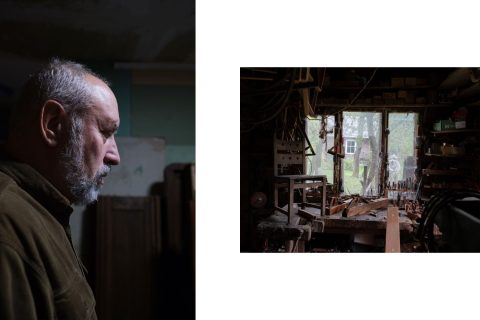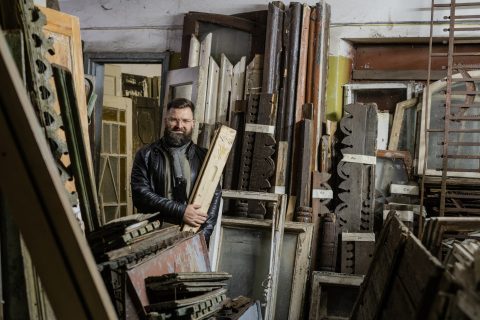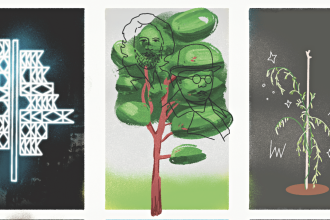“Trees and forests are my everyday life,” says Rita Kybartienė, a member of the Riflemen’s Union, a teacher at the Kaunas Technology Training Centre social services department who photographs and weaves various items from wood.
When we met in her office at the school, Rita Kybartienė told us about her participation in social activities and the patriotic values that have brought her to where she is now.
How did you decide to join the Riflemen’s Union?
I believe that the values of the Riflemen’s Union are in my blood. I grew up in a family that strongly fostered patriotism. When I went to school, everyone had to be little octobrists, pioneers or komsomol members. And I was not. We had a lot of pressure from school. We used to hear that I was ruining the school’s prestige and progress. Only later did I realise what a brave gesture that was and how much it meant for my future in the system of that time.
Many years later, when I was moving my mother’s things from her old flat, I found my school record, “A girl in poor health from a politically ignorant working-class family.” So that said it all: I couldn’t pursue higher education with those values. So, I enrolled in woodworking, which I did very well, it has been with me since I was a teenager, and I have continued to do it ever since. Later, in a free Lithuania, I completed my higher education, when my character and political views no longer prevented me from pursuing education.
Of course, just as in my childhood and adolescence, I still hold the values that are important to me and continue to foster patriotism. So, joining the Riflemen’s Union seemed like a very natural thing to do, enabling me to pursue activities that align with my worldview.
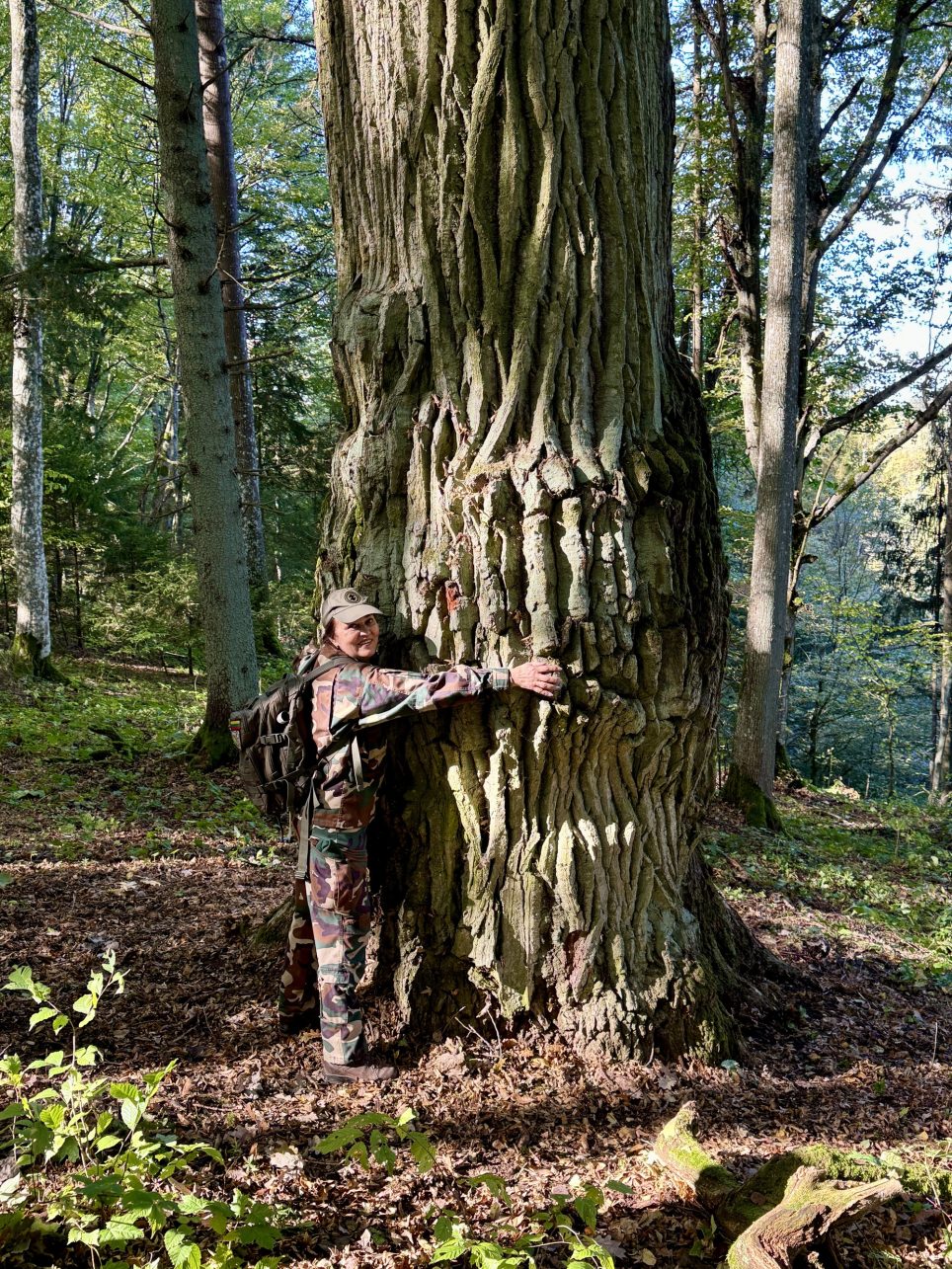
As a riflewoman, you spend a lot of time in the woods. Have you always been attracted to forests and nature?
Definitely always. I lived in the city, meaning that I was supposed to be an asphalt kid, but it was quite the opposite. I spent most of my childhood in the woods, and we used to run around in the backyard until midnight. As I said, it’s not only forest activities that connect me to trees. I have been very fond of braiding. I weave all sorts of things: furniture, baskets and I used to go to fairs a lot, and my whole family was involved in it. I have also organized an exhibition of my own woven clothes.
So, wood is my daily routine, whether I am in the forest or at work here at the Kaunas Technology Training Centre, where I teach how to weave various items from different materials, including nets needed by the soldiers in the forests.
What are your days like in the Riflemen’s Union?
Each day is different. Since there isn’t a single answer to what Riflemen do, it’s difficult for me to say definitively. Of course, our activities are paramilitary, so a big part of this experience involves working in the forests, training exercises, education, hikes, and assisting the military and society in crises.
When I joined the Riflemen’s Union, I was a teacher, and there was a great need for teachers in the organization, so I started leading a young Riflemen’s group at Kaunas Viktoras Kuprevičius Progymnasium. This year, I received the 3rd Degree Riflemen’s Union Award, I hold a top-level leadership certificate and have also been elected as the young Riflemen’s company commander.
I have also participated in other Union activities: patrolling the border, working in hospitals with COVID patients, volunteering during the refugee crisis, and working with Ukrainian war refugees.
What experiences from the Riflemen’s activities stood out the most?
One of the most memorable was working in the forests during the refugee crisis, as well as welcoming Ukrainian war refugees. It was difficult to see them arriving in an unfamiliar country, often at night, having left their families far away at home, not knowing if their loved ones were safe or if they would ever see them again. Their journeys were usually unplanned and exhausting, sometimes requiring them to sleep standing up, traveling for a week or more by train just to reach Lithuania and find refuge from the hardships in their homeland.
We know the forests, we’re equipped with the right tools, and we’re certainly used to difficulties and physical exertion. But these stories and encounters with people affected by war have a profound impact.
In general, our activities are very diverse; we have to be prepared to help in any way, respond quickly to new situations, and adapt.
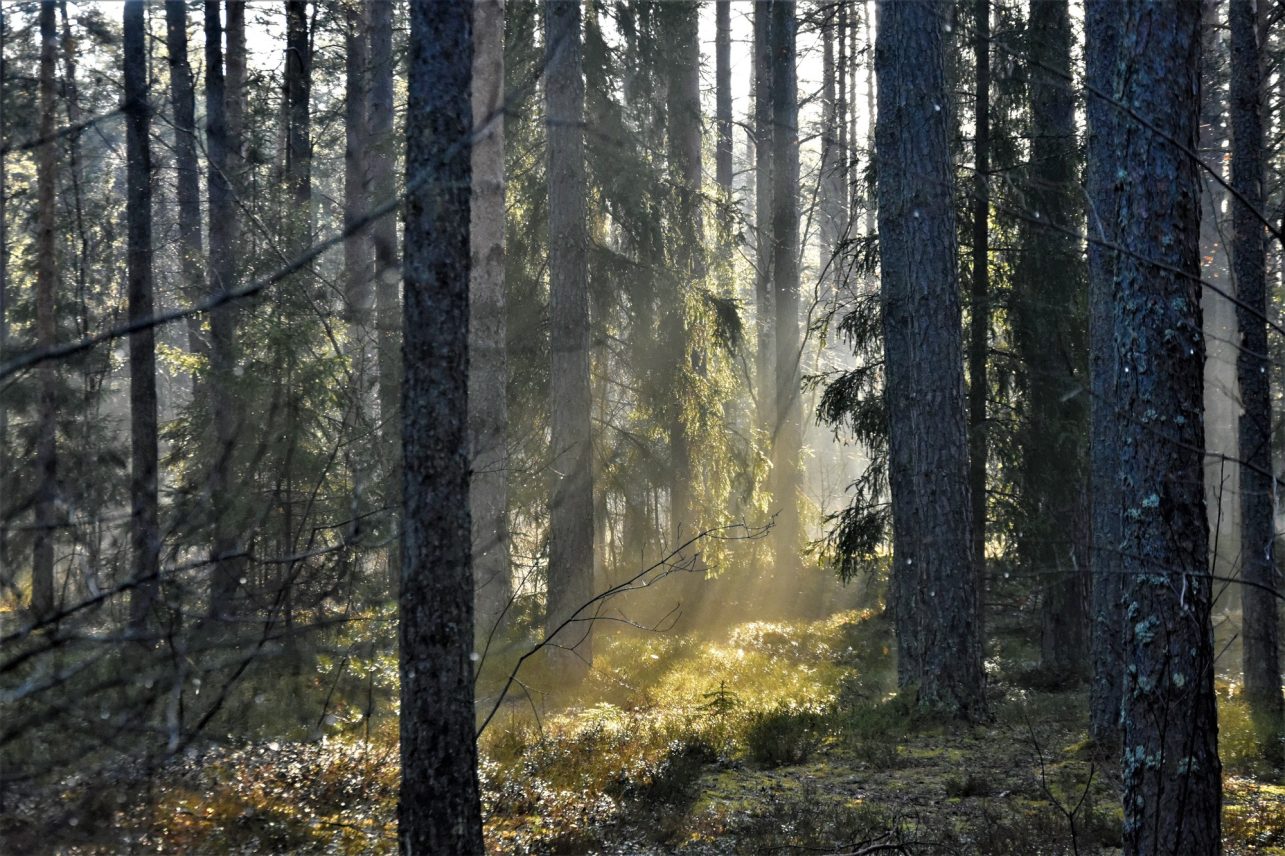
You spend a lot of time on training and hikes, leading your squad, or conducting educational sessions. What skills do you teach in the forests?
We live in a developed world where we no longer need to worry about survival; our daily lives are filled with warmth, readily available food, and other amenities. Being in the forest, without modern infrastructure, we have to learn to survive with what we create ourselves.
So, we learn how to start a fire to have a source of warmth and a way to prepare food, we learn how to set up camp in the forest properly to stay warm, and other essential survival skills.
Other important activities include learning to navigate the forest, such as using ropes and carabiners to cross a frozen stream and identifying plants: knowing which ones can help and which ones to avoid. All these activities prepare people for unexpected situations, ensuring they have basic skills to handle crises or, if needed, contribute to the country’s defense.
Your activities are more practical than theoretical. Why are you focusing on that specifically?
We all learn things from experience. Sometimes a girl goes on her first hike and, after the night, says, “You know, I slept on an anthill.” Of course, it’s unpleasant but also quite beneficial. However, on the next hike, I notice that before choosing a spot for her tent, she checks carefully to make sure there are no ants. And no matter how many times I might explain theoretically that you need to check your sleeping spot to make sure it’s suitable, it would never work as well as experiencing it herself and learning from her own mistakes.
We never know when that highly unexpected hour X might come. And if these young people have never been in the forest and don’t know how to start a fire without matches, for example, in the rain, then an entire generation will be unprepared to defend their homeland.
Do you feel that today’s young generation is disconnected from nature?
I definitely sense a big difference between today’s youth and previous generations. There’s so much beauty around us, and nature truly has the power to amaze us, but it seems that most choose not to see it. Nowadays, children who join the riflemen’s group are rarely familiar with the forest. When we teach life skills, students often don’t know how to find their way around in the forest, they don’t know where the north is, and sometimes they don’t know what an oak, a maple, or even a birch tree looks like. In such cases, I am glad that at least they distinguish between spruce and deciduous trees.
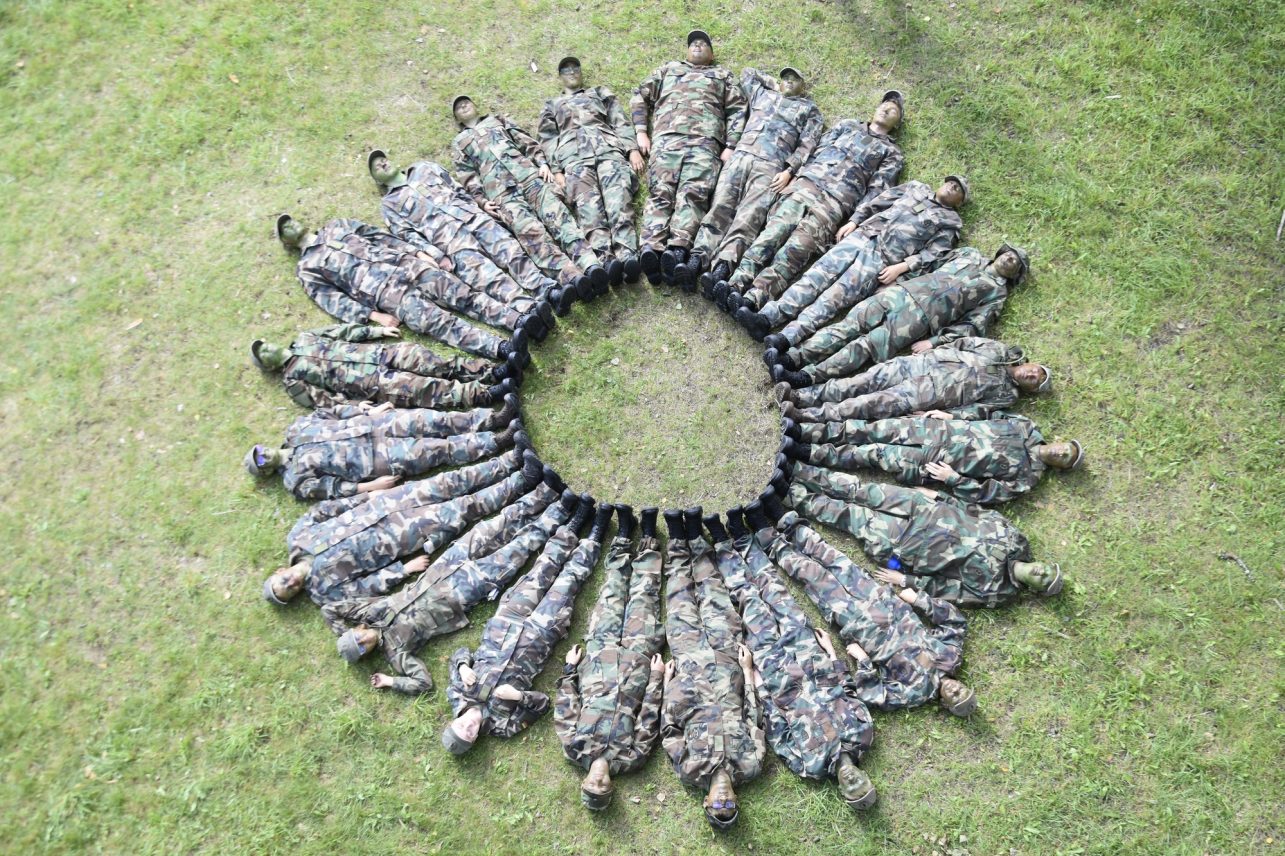
Has the nature of your training changed since the war in Ukraine began?
The nature of our activities has always been the same. We teach essential survival skills and first aid, which are always useful. However, I have gained a lot of experience over these years. I learned from soldiers, worked at the border, and volunteered in a hospital. Now my educational activities are richer, and I can tell more from my own experience.
We never emphasize war when we talk to children, there’s no need to traumatize young people too much, but they still need to know that it’s happening. They need to be able to take care of their family, even if they’re still quite young.
Discipline is important for young people. Sometimes parents bring their children to us and say, “Teach them manners.” We don’t discipline them; we nurture them. We strive to help them grow into responsible citizens. It’s the parents who should be teaching their kids manners at home.
What would you recommend to someone who wants to know the forests and gain essential skills?
I would like more people to look around as they walk and lift their gaze upward. Most seem to be more interested in the ground under their feet or their phones. We’re surrounded by so much beauty and so many opportunities to learn. As I mentioned, we learn best from experience. So, I’d suggest simply going out, observing, and trying. I always recommend learning practical skills and experiencing as much firsthand as possible.

